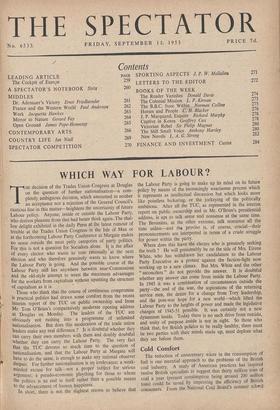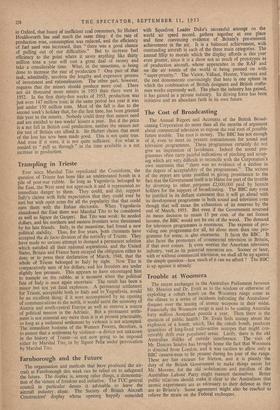Cold Comfort The reduction of unnecessary waste in the consumption
of fuel is one essential approach to the problems of the British' coal industry, A study of American practices has inspired twelve British specialists to suggest that thirty million tons of coal a year (present consumption being around 200 million tons) could be saved by improving the efficiency of British consumers. From the National Coal Board'S summer schlol in Oxford, that haunt of inefficient coal consumers, Sir Hubert Houldsworth has said much the same thing: if the, rate of production rose, consumption was reduced, and the efficiency of fuel used was increased, then " there was a good chance of pulling out of our difficulties." But to increase fuel efficiency to the point where it saves anything like thirty million tons a year will cost a great deal of money and take a considerable time. What, in the meantime, is being done to increase the rate of production ? One part of that task. admittedly, involves the lengthy and expensive process of investment and rationalisation. The other part, however, requires that the miners should produce more coal. There are six thousand more miners in 1953 than there were in 1952. In the first thirty-five weeks of 1953, production was just over 147 million tons; in the same period last year it was just under 150 million tons. Most of the fall is due to the second week's holiday that, for the first time, has been granted this year to the miners. Nobody could deny that miners need and are entitled to two weeks' leisure a year. But if the price is a net fall in British coal production, neither the miners nor the rest of Britain can afford it. Sir Hubert claims that most of the loss has now been made good. This is not quite true. And even if it were, it is not quite sufficient. For what is needed to " pull us through " in the time available is a net increase in production.



































 Previous page
Previous page